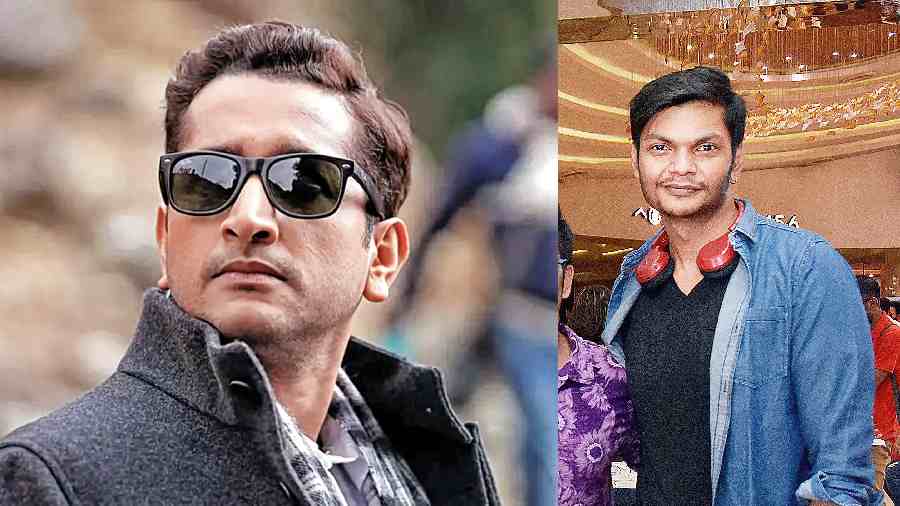Feluda — the name itself inspires a sense of mystery, adventure and nostalgia in almost every Bangali or for that matter, in anyone who has grown up with Bengali fiction. Who among us can deny having at some point or the other aspired to have deduction capabilities akin to Pradosh Chandra Mitter, or cultivating what a true-blue Feluda fan can only describe as Magajastra. It’s no surprise then that the fanfare around this fictional detective created by none other than the master himself — Satyajit Ray — has only increased in the five decades since he appeared on the pages of Sandesh.
Like many others before me, I too grew up with his stories. I was still very young when I was first introduced to Feluda. It happened not through the charm of printed pages, but through the magic of cinema. Like many children of my generation, one of the many things I used to look forward to during the Durga Pujo holidays was the few hours in the afternoon that were dedicated to children’s programmes on television. It was during one such afternoon that I first watched Sonar Kella. At that point, there was just one other Feluda film in existence, Joy Baba Felunath, which I watched soon after. Getting hold of the collection of stories was next on the agenda, of course, my parents were more than happy to oblige. When the stories came alive in my imagination, I did not have to start from scratch to visualise Feluda. Needless to say, all of my imagination could not create a Feluda better than the legendary Soumitra Chatterjee, or a Lalmohan Ganguly more lovable than the iconic Santosh Dutta. Although I must admit, I had been guilty of quite often imagining a Topshe who bore a striking resemblance to me.
The new millennium arrived. By now, I was a teenager. The world around me had started changing faster than I could keep up with it, my priorities changing with it. The old VCR that had helped me watch Joy Baba Felunath and rewatch Sonar Kella several times was collecting dust, forgotten in a damp and dark corner of the TV cabinet. A fancy new VCD player had now become the centre of attention. The pages on the books, monthlies and supplements containing Feluda’s adventures had faded from sparkling whites to faded yellows, but Feluda was still alive within me.
Even though I knew some of the stories by heart now, I would still look forward to revisiting them every so often. By this point, I had also read Sir Arthur Conan Doyle’s Sherlock Holmes novels, the detective whom Feluda himself called the master. Although it’s elementary that a mystery fiction lover like myself would fall in love with the world of Holmes, somehow it didn’t quite “cultivate” the same sense of belonging that Feluda evoked. Feluda was mine. Feluda was ours. We could never have enough of him.
Quite obvious then that the heart leapt with joy when Feluda came back on the big screen in a new avatar. The fanboy in me who had waited forever to watch Feluda work his magic on the big screen now had a new Feluda to cheer for, played by Sabyasachi Chakrabarty. Twenty-five years after Joy Baba Felunath, Sandip Ray had brought back our favourite detective to the big screen and we couldn’t get enough. Over the next few years, the visuals of the iconic detective in my imagination started to change and look more and more like Sabyasachi uncle, or Benukaku as I lovingly call him. So much so that when I met him for the first time, I stood wide-eyed for a long time, awestruck at having found myself in the presence of Feluda himself.
Which brings us to today, when the release of Shabash Feluda is around the corner. Even as I write this, having taken a jog down memory lane and recollecting all the ways in which Pradosh Chandra Mitter has impacted my life, I still find it hard to believe that I have been fortunate enough to have played a part quite literally in a story so close to my heart. I still remember how I went numb when I was told which project I was auditioning for. Or the day when the entire cast assembled for the script reading and I felt humbled and frankly quite intimidated by the august company I would be keeping.
Of course, I must refrain from going into details about my part in the scheme of things since I wouldn’t want to give away any spoilers. Feluda and Topshe are two of the most iconic and beloved characters of both Bengali literature and Bengali cinema and while it would be impossible for me to speak about Shabash Feluda without any sort of bias, for obvious reasons, I could however narrate a small incident. Well after I had wrapped up my portions for the series, I met Parambratada on the sets of a different project where I had the privilege of sharing the screen with him. When I bumped into him before we rolled, I called him Feluda. Such is the impression that his portrayal left on me.
I feel that while the role of Feluda is a coveted one among actors, it couldn’t have been a mean feat having to deal with all the expectations that come with such a character while simultaneously striving towards creating a contemporary and relevant portrayal that still has all the traits and charms of the character that we have all grown up with. Rwitobroto (Mukherjee) epitomises Topshe — tech savvy, next-gen yet bearing the trademark innocence, curiosity and wanderlust. From the very onset, the captain of the ship, Arindamda (Sil), made us all very aware that we would all be taking on a huge responsibility.
Whenever an iconic character like this is adapted for the screen, there are a lot of opinions to deal with, a lot of sentiments involved and a huge burden of expectations — none of which should ever be taken lightly. The core intention that he communicated to us was and still is to take Feluda to the new age, to the next generation while keeping the essence and the heart of the stories intact.
We live in a world today where content is being consumed at a rate faster than ever before, entertainment options are so vast and varied that it has become a problem of plenty. Yet, characters and stories that occupy our core memories are becoming rarer than they ever have been. The beautiful thing about Feluda is that it is a part of the core memories of multiple generations. Readers of all ages can recall the exact day that they were introduced to Feluda. One can hope realistically that the same would hold true even two decades from now.
What better outcome could we look forward to than one where today’s kids watch the series and then decide to read up on the novels? While older fans in their 50s bring out the old books to revisit the same legendary adventures, someone from generation alpha tries to find 21 Rajani Sen Road on Google Maps, both equally enamoured by the same iconic sleuth.










